Volunteering is Couple’s First Step Toward Retirement
Lee Park and Eric Tiffany have always wanted to give back through service and, for years, have been interested in the possibility of doing a long-term volunteer program abroad. With that in mind, they chose a two-week service program in Crete to “wet their feet” and gain a little experience for their future retirement; exploring the idea while being of service at the same time. Looking back on their service program in June, 2022, they offer their personal insights to those who also are nearing retirement. If that’s you or someone you know, read on here!
What led you to a volunteer vacation at this time of life?
Lee: While I do volunteer at home, I thought the Crete Service Program would be a great first experience traveling to do service. And, since we’ve traveled to many locations around the world, we wanted to get to know one community a bit better – getting to see the same kids every day, getting to establish our routines in town, getting to see some of the same people every day. As it turned out, the relationships with the kids and our teammates are the ones that have been the deepest, of course. The kids were all great fun – sometimes challenging – but just like kids anywhere. It was great to meet the other volunteers and to understand their backgrounds and motivations.
Eric: I was unsure what to expect, as I have no experience teaching English, and minimal experience with kids. However, I found that I could make some progress with the five or six different students – all boys between 11 and 14 – who seemed very interested in learning. Although sometimes the other students seemed to want to be doing anything else. I think I captured each of their attention at various times with some activity. Two 14-year-old boys, especially had been in the English program with Global Volunteers for several summers, so they knew the drill and could interpret for some of the younger students. So I had several excellent interactions and conversations with the boys about how the Greek education system differs from (that in) the U.S.
I, fact, I was a bit sad when Alex – perhaps the student with whom I connected best – had his last day with me. His English is excellent, and I hope he excels in life. It would be nice to know what his future holds and what tiny part of that I might have had a hand in shaping!
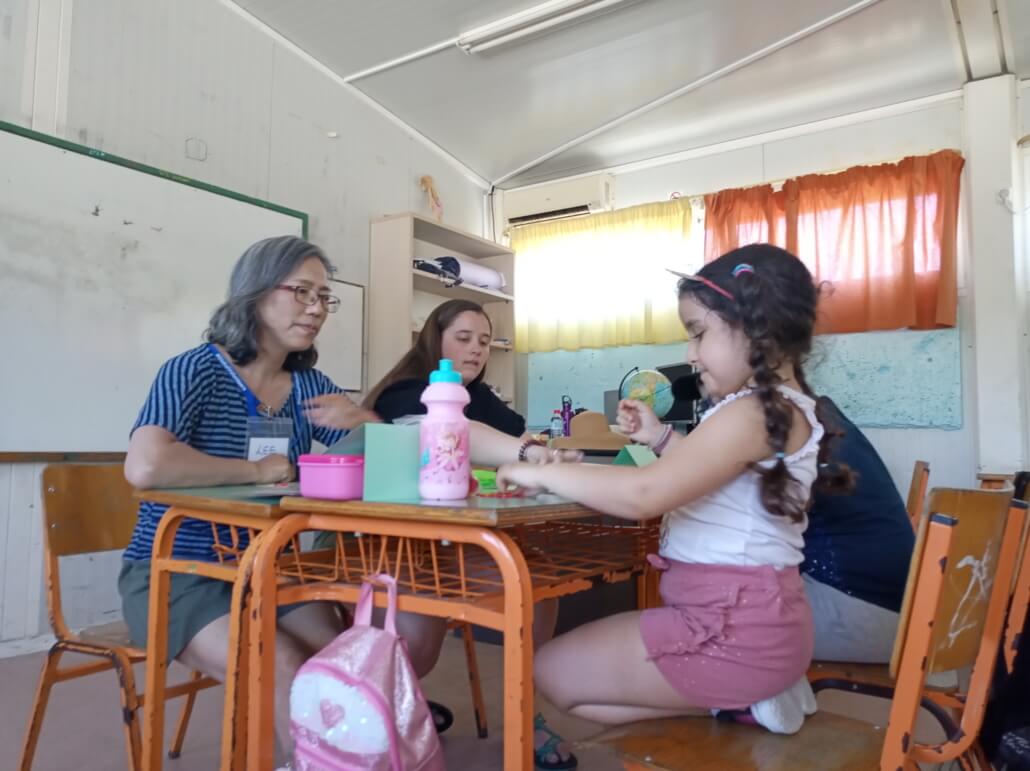
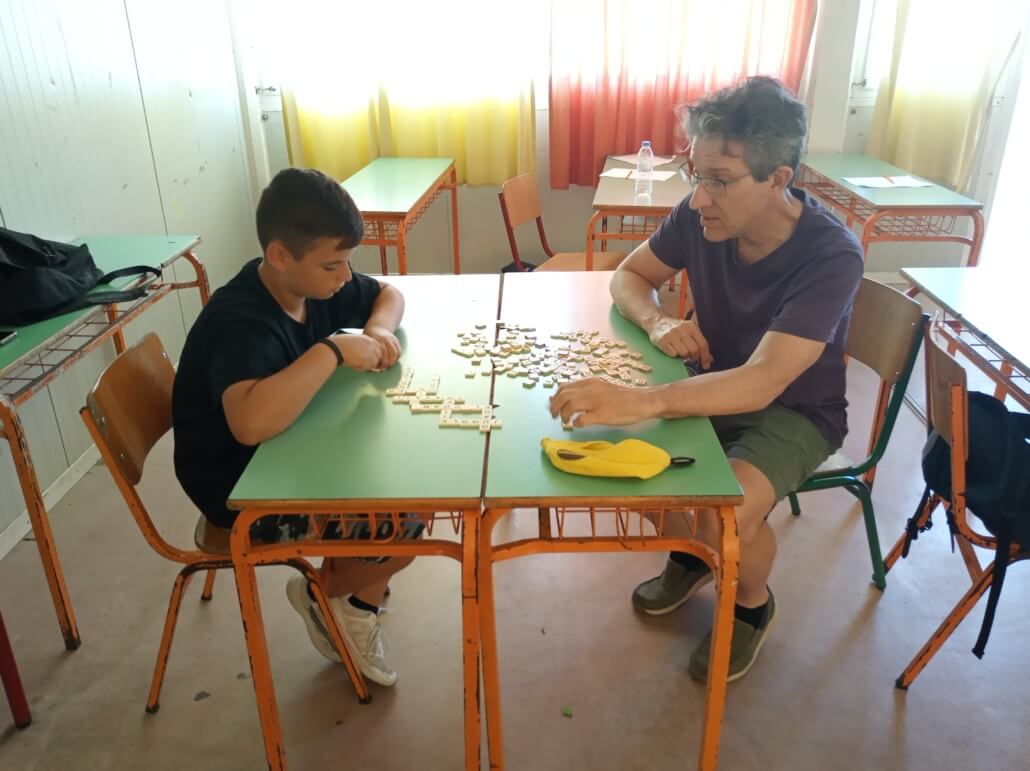
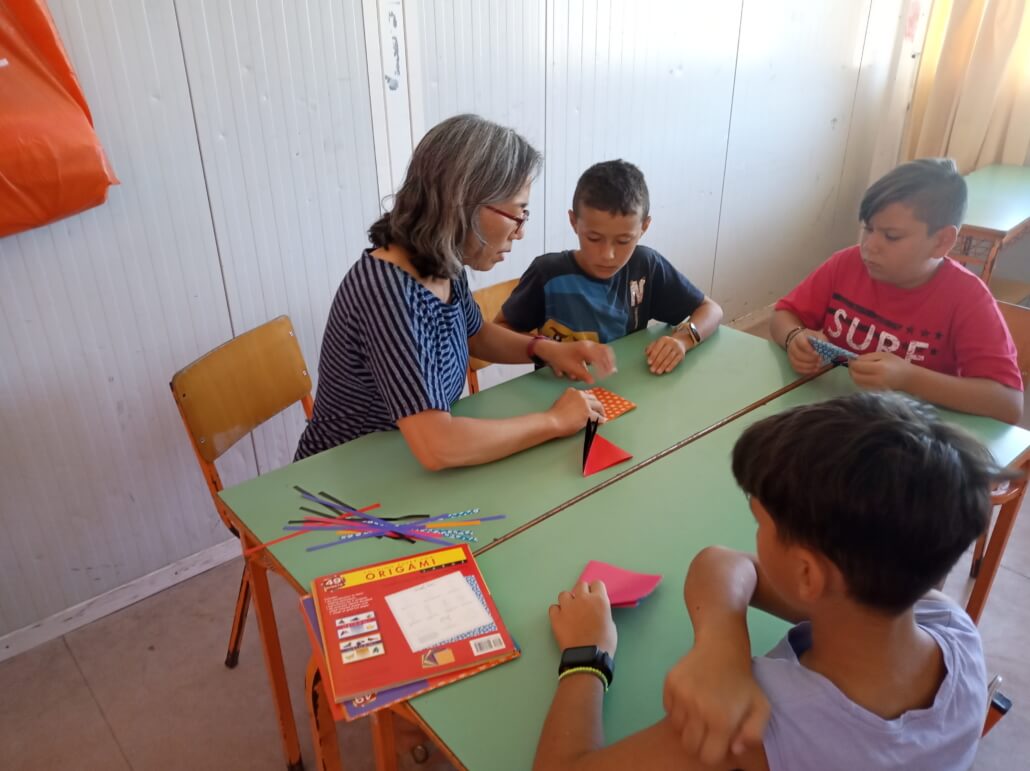
“I had several excellent interactions and conversations with the boys about how the Greek education system differs from (that in) the U.S.”
~Greece volunteer Eric Tiffany
What were your primary assignments, and how did they evolve each day?
Lee: Our team taught English to children aged 7-13 or so. Because I teach college chemistry at home, my assignment was familar in some ways – trying to think about what kinds of activities/explanations might work, and how to change things up. But of course, this is a very different level and subject, so even though some elements were familiar, there was a lot that was new. But I’ve always loved learning languages, so it was a lot of fun to try to teach a bit of English. Because I was working with younger children, who didn’t have much English (and I had only learned a few words of Greek), I couldn’t learn much about their lives and culture from them. But it was great to work with the same children every day and see them grow, even over a short program. I wished then I had time to learn a little more Greek!
Eric: My assignment was teaching conversational English skills to 6th grade-plus for four hours daily, plus preparing for lessons each day. Fortunately, the number of volunteers matched the number of students, and we could divide them into approximate levels of English competency. In my group of boys, and the number of students, their abilities, attitudes, and personalities fluctuated daily. The range of abilities and maturity in the class was challenging, and I probably didn’t benefit everyone equally. However, I was pleased that the kids all participated enthusiastically (even occasionally), and I’m hopeful my contribution has stuck with them.
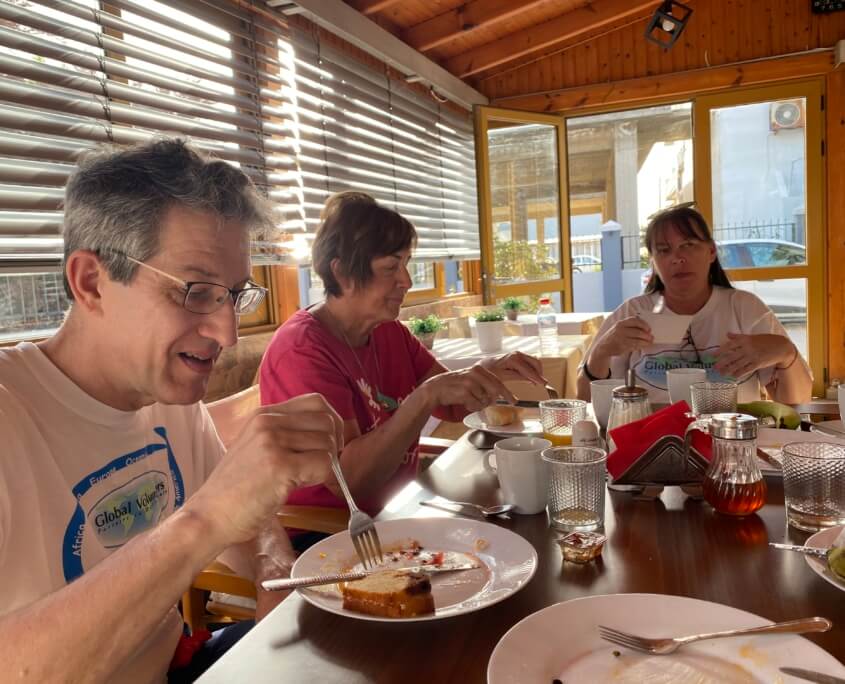
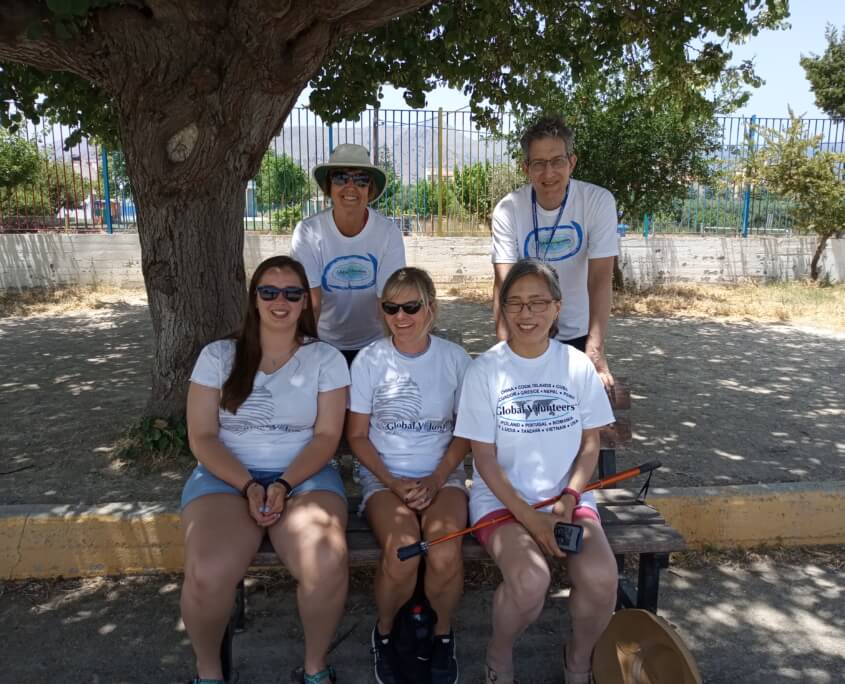
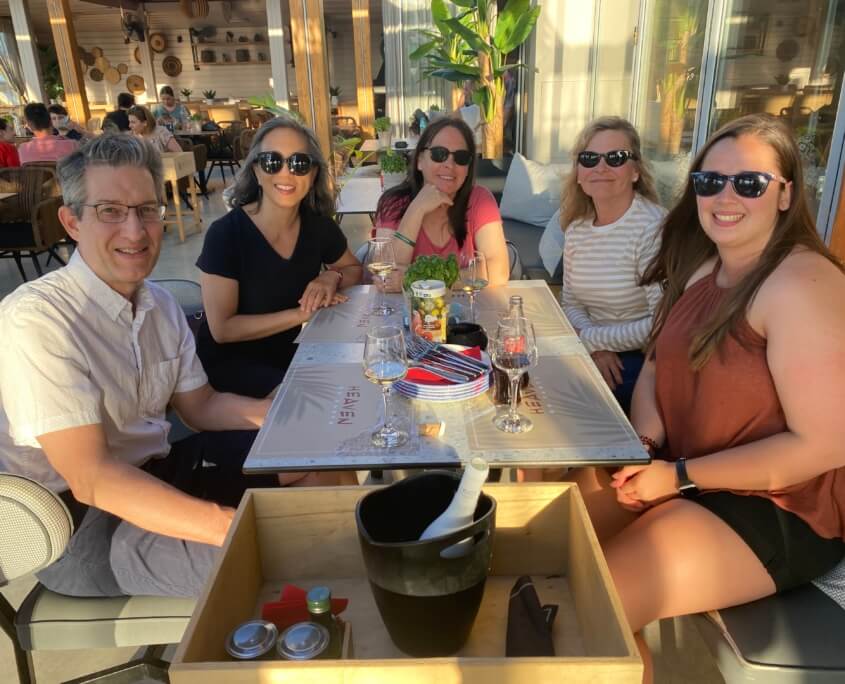
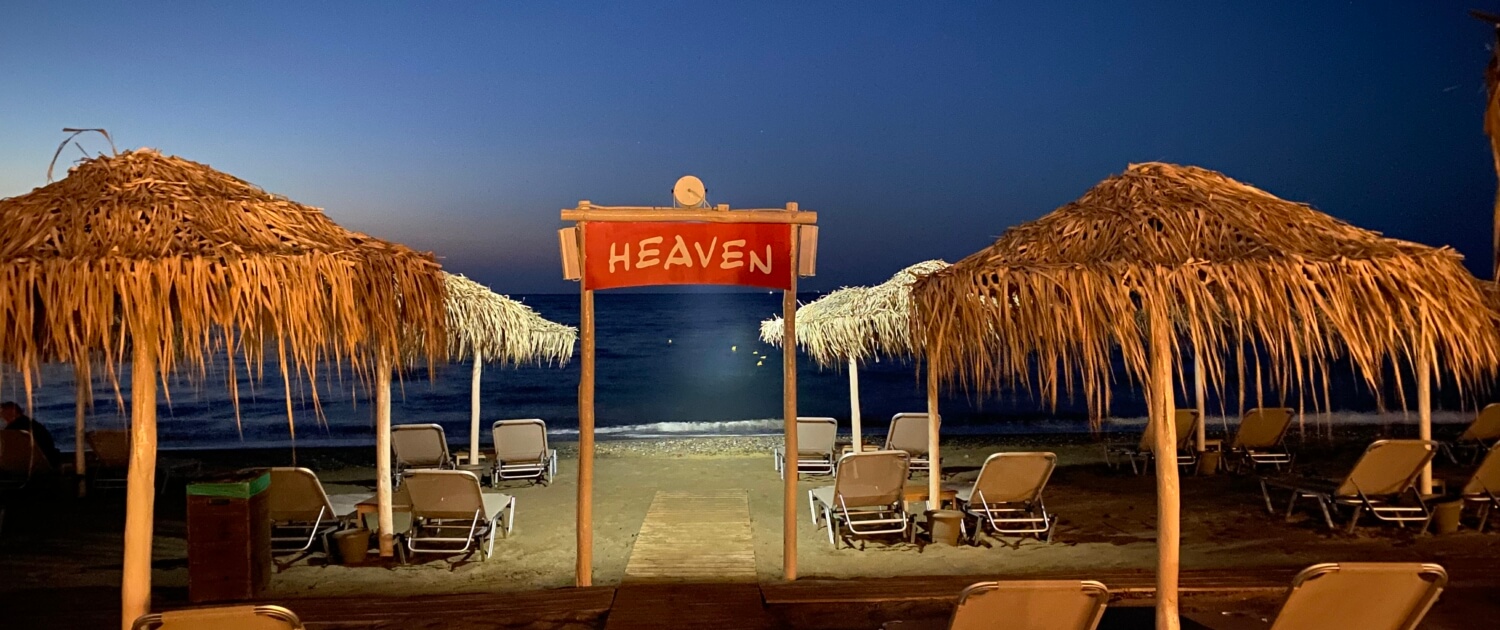
What are some of your best memories, and how do you describe your experience to friends?
Lee: I found everyone welcoming, gracious, and generous. They were patient and helpful with my questions as I was trying to learn a little Greek. Our team leader took excellent care of us, from checking in with each of us about our daily plans inside and outside of school, and offering advice “as a local” to keep us energized. The kids were fantastic. Those that started shy quickly warmed up, and those that were naturally more gregarious were eager to practice and show what they’d learned.
Eric: I think the ubiquitous tourist industry on Crete tends to hide the actual contemporary Greek culture. We were able to immerse ourselves in the amazing history of Crete by visiting the various archeological sites and museums. The small Kotsanas Museum of Ancient Greek Technology was very interesting. On the weekends, we could get out of the tourist areas a bit and into the other parts of the country where we learned how people live away from the tourist spots.
Our team leader provided invaluable insights into our students’ living experience apart from tourism.
Lee: It was sad to leave after just two weeks. I would have loved to stay longer to see the growth in the children over a more extended period! That’s the hard part for me – since I teach at home, I’m accustomed to a longer arc and measuring progress over a more extended period. But the kids are just like kids anywhere, which is what I expected, so I know they absorb more than what is obvious. The other rewarding element was working with other volunteers and understanding something about their lives. That’s the part I hadn’t understood – how much time we’d spend together and how many opportunities we’d have to learn about one another. That has been a very great memory of the program that I had not anticipated.
Eric: I definitely believe helping the kids achieve better English skills will benefit them throughout life. Any interaction that bridges cultures will bring more understanding and cooperation in an increasingly crowded, yet shrinking, world.
You may also enjoy reading:

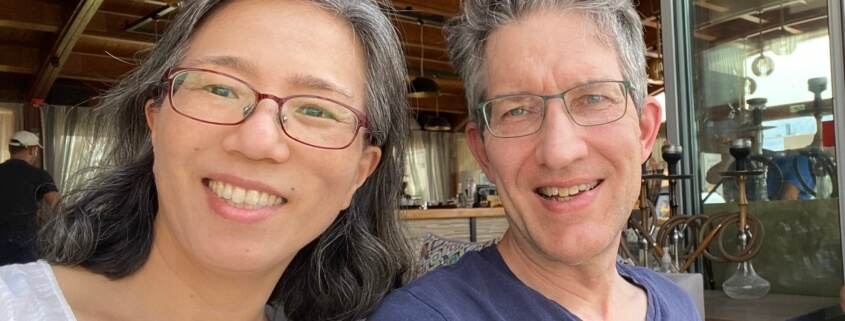


Leave a Reply
Want to join the discussion?Feel free to contribute!